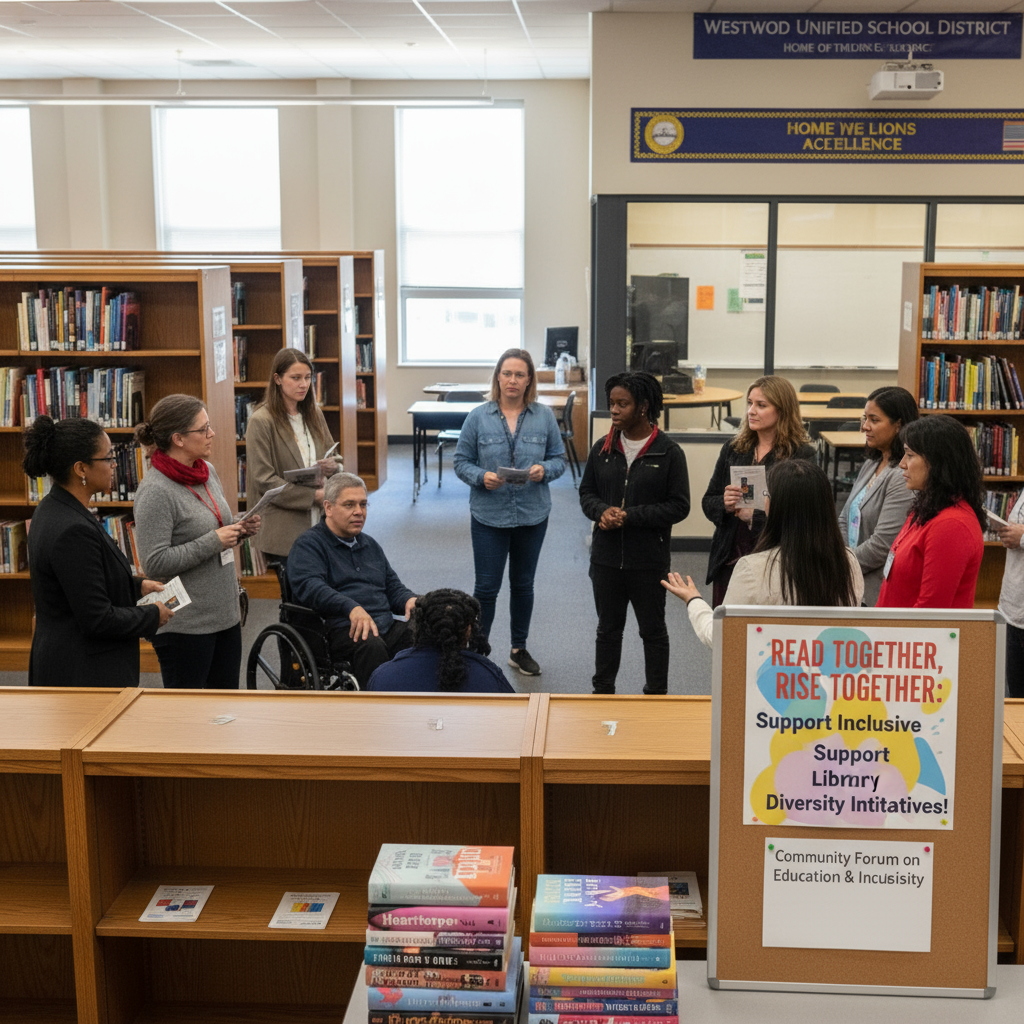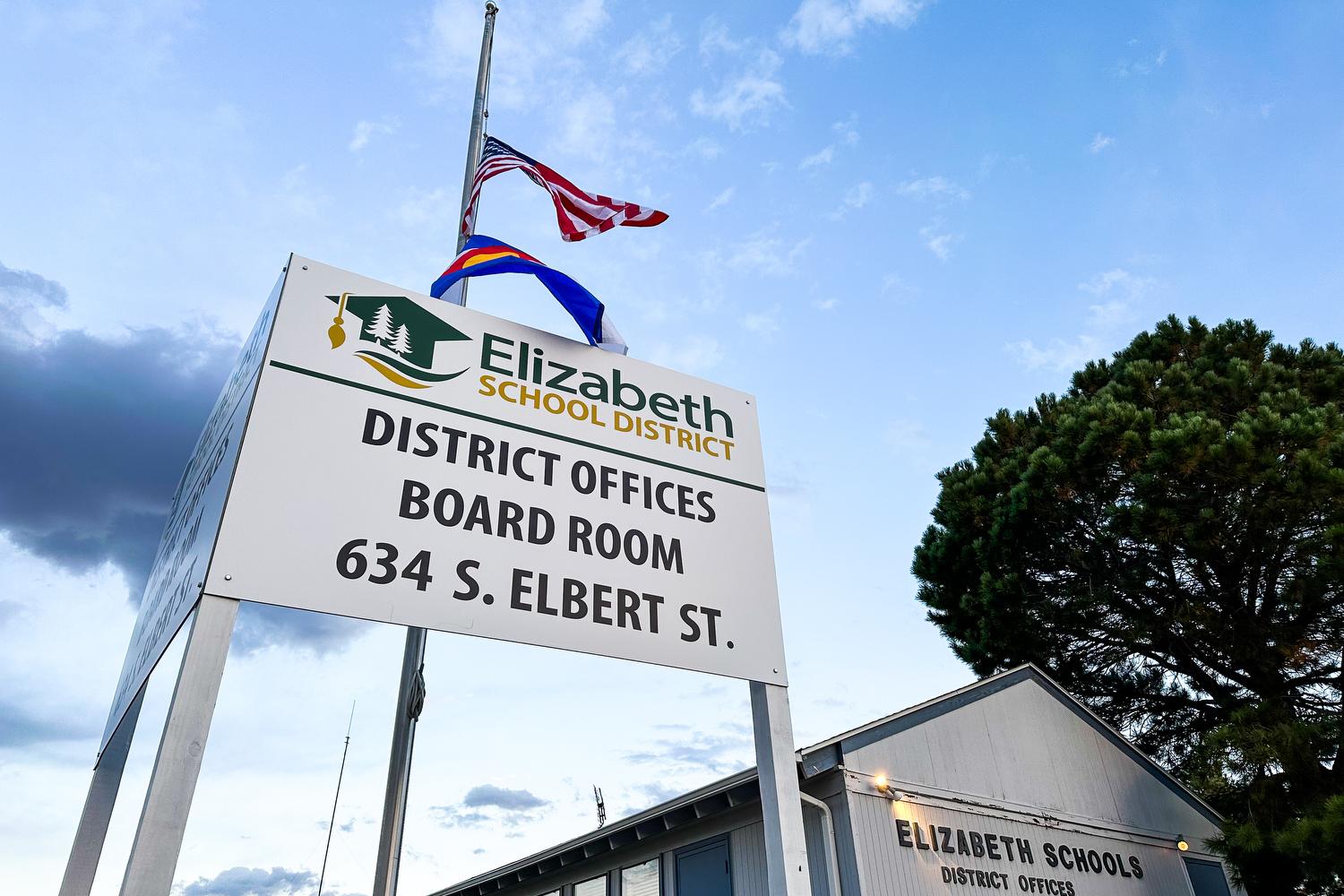
Colorado School District Lawsuit Over LGBTQ and Minority Book Removals
A Colorado school district is facing a lawsuit after removing books with LGBTQ and minority content from its libraries, sparking debates over free speech, censorship, and age-appropriate material in education. The district is fundraising for legal fees with support from conservative groups, reflecting a deep cultural divide. Central to the case are First Amendment protections and legal precedents like *Board of Education v. Pico*, which emphasize students' rights to access diverse perspectives. The controversy highlights tensions between parental concerns, educational inclusion, and traditional values, with potential nationwide implications depending on the court’s ruling.
Summary
Colorado School District Faces Lawsuit Over Library Book Removals
In a contentious move, a Colorado school district has found itself at the center of a legal battle after deciding to remove books from its libraries, particularly those containing LGBTQ and minority content. This action has sparked a lawsuit that delves into the complexities of free speech protections, book censorship, and the challenge of determining age-appropriate content in educational settings. The district, in response, is actively fundraising for legal fees, supported by conservative groups, highlighting a broader cultural divide.
Key Takeaways: - A lawsuit has been filed against a Colorado school district for removing books with LGBTQ and minority content from school libraries. - The district is engaging in fundraising efforts to cover legal fees, with backing from conservative entities. - The legal dispute revolves around free speech rights, the legality of book censorship, and the interpretation of age-appropriate content. - Legal precedents like 'Board of Education v. Pico' are central to the case, influencing arguments on both sides. - The controversy reflects a larger cultural debate on educational inclusivity versus traditional values.
---
Legal Battle Over Library Book Removals
The controversy began when the school district decided to remove several books from its libraries, citing concerns over content deemed inappropriate by some parents and community members. This decision particularly affected books that included themes or characters related to the LGBTQ community and other minority groups. Critics argue that this move is a form of book censorship, infringing upon students' rights to access diverse perspectives which are crucial for their educational value and personal development.
Free Speech Protections at the Core
At the heart of the lawsuit is the question of whether the removal of these books violates free speech protections under the First Amendment. The plaintiffs argue that by selectively removing books based on content, the district is not only engaging in censorship but also denying students the educational benefits of exposure to a broad spectrum of ideas. This stance is supported by legal precedents such as 'Board of Education v. Pico', where the Supreme Court ruled against the removal of books from school libraries for ideological reasons, emphasizing students' rights to receive information.
Fundraising for Legal Defense
In response to the lawsuit, the school district has launched a fundraising campaign to cover the escalating legal fees. This effort has garnered support from various conservative groups who view the defense of the district's actions as a stand against what they perceive as progressive overreach in education. Public fundraising campaigns have also been initiated, tapping into community sentiment that aligns with the district's position on maintaining traditional values in education.
Parental Concerns vs. Educational Value
The debate also centers around what constitutes age-appropriate content. Parental concerns focus on protecting children from material they believe is too mature or controversial for school settings. However, advocates for the books' reinstatement argue that the educational value of these texts, which include narratives that reflect real-world diversity, outweighs concerns about appropriateness. This discussion highlights a fundamental disagreement on the role of schools in shaping students' understanding of the world, including aspects of identity, diversity, and inclusion.
Potential Outcomes and Court Involvement
The lawsuit might lead to a court order that could either mandate the return of the removed books to the libraries or halt further removals pending a legal review. Such an order would not only affect this specific case but could set a precedent for similar disputes across the country. The outcome will likely depend on interpretations of educational policy, the balance between parental rights and students' rights to information, and how courts view the educational benefits versus the potential risks of the content in question.
Cultural and Educational Implications
Impact on Representation
The removal of books with diverse content can significantly impact students, particularly those from minority and LGBTQ backgrounds, by reducing representation in their educational environment. This lack of representation can affect students' sense of identity and belonging, potentially leading to feelings of isolation or marginalization within the school community.
Public Opinion and Policy Influence
Public opinion on this issue is divided, with surveys showing a split between those who support the removal for the sake of child protection and those who see it as a clear case of censorship and a violation of educational rights. This division is mirrored in educational policy debates, where some regions push for more inclusive curricula, while others advocate for maintaining traditional educational values.
Financial Considerations
The financial aspect of this legal battle is non-trivial. The cost of litigation can divert funds that might otherwise be used for educational resources or improvements. This situation often leads to community debates over where public funds should be allocated, further highlighting the tension between legal defense and educational investment.
Conclusion
The lawsuit against the Colorado school district over library book removals is more than a local dispute; it's a microcosm of broader societal debates on free speech, censorship, and education. As the case progresses, it will not only determine the fate of the books in question but also contribute to the ongoing dialogue about how schools should navigate the complex landscape of content suitability, diversity, and constitutional rights. The resolution of this case could influence educational practices nationwide, making it a pivotal moment in the intersection of law, education, and culture.

Frequently Asked Questions
Q: Elizabeth School District book removal lawsuit
A: The Elizabeth School District faced a lawsuit after removing certain books from its school libraries, prompting legal challenges based on claims of censorship and violation of students' First Amendment rights. The suit typically argues that removing these books restricts access to diverse perspectives and educational materials. These cases often attract public attention, reflecting the broader national debate over book bans and educational content in schools.
Q: ACLU lawsuit against Colorado school district
A: The ACLU has filed a lawsuit against a Colorado school district alleging violations of students' constitutional rights. The lawsuit typically centers on issues such as discrimination, free speech, or improper handling of sensitive topics within the schools. These legal actions aim to ensure that school policies comply with federal and state laws protecting students' rights. Specific details of the case depend on the circumstances and claims made against the district.
Q: fundraising for school legal fees
A: Fundraising for school legal fees involves collecting money to cover expenses related to legal matters a school may face, such as disputes or compliance issues. Schools can organize events, online crowdfunding campaigns, or reach out to the community and alumni for support. Transparency about the need and intended use of funds is important to build trust and encourage contributions. Legal professionals or school boards often oversee the process to ensure funds are used appropriately.
Q: which books were removed in Elizabeth School District
A: In the Elizabeth School District, several books were removed from school libraries and reading lists as part of a review process aimed at assessing content for age-appropriateness and community standards. Titles reported to be removed included works that involved themes of sexuality, race, and political topics deemed controversial by some parents and board members. Specific titles often varied by grade level and school, reflecting efforts to align with the district's educational goals and responses to parental concerns. For detailed and updated lists, the district's official communications or school board meeting records are the best sources.
Q: legal arguments about book censorship in schools
A: Legal arguments about book censorship in schools often center on the First Amendment rights to free speech and free access to information. Courts typically weigh the educational value of a book against the objections of parents or school boards, considering whether banning a book constitutes unwanted censorship or protects students from inappropriate content. Precedents like the Supreme Court's decision in Island Trees School District v. Pico (1982) suggest that removing books simply because officials dislike their ideas can violate students' constitutional rights. Additionally, arguments often involve the balance between community standards and diversity of viewpoints in education.
Key Entities
Elizabeth School District: Elizabeth School District is a public education system serving the community of Elizabeth, Colorado. It is involved in recent legal challenges regarding COVID-19 policies in local schools.
American Civil Liberties Union of Colorado: The American Civil Liberties Union of Colorado is a nonprofit organization dedicated to defending individual rights and liberties in the state. It has taken an active role in challenging restrictions related to COVID-19 in educational settings.
Heidi Ganahl: Heidi Ganahl is a Colorado businesswoman and politician known for advocating conservative policies. She is connected to legal actions contesting COVID-19 measures in the Elizabeth School District.
First and Fourteenth Law: First and Fourteenth Law is a legal advocacy group focusing on constitutional rights and civil liberties. The organization has engaged in litigation against public health mandates in Colorado schools.
Citizens Defending Freedom: Citizens Defending Freedom is a nonprofit organization that advocates for religious and parental rights, particularly in education. It has been part of efforts opposing COVID-19 restrictions in Colorado school districts.
External articles
- ACLU of Colorado Sues Elizabeth School District Over ...
- This Colorado district was sued for removing library books. ...
- Crookshanks, et al. v. Elizabeth School District
Related Articles
YouTube Video
Title: ACLU registers a win, as some books that were banned return to a Colorado school district's shelves
Channel: CBS Colorado
URL: https://www.youtube.com/watch?v=eyeSAdPFkns
Published: 5 months ago
Education